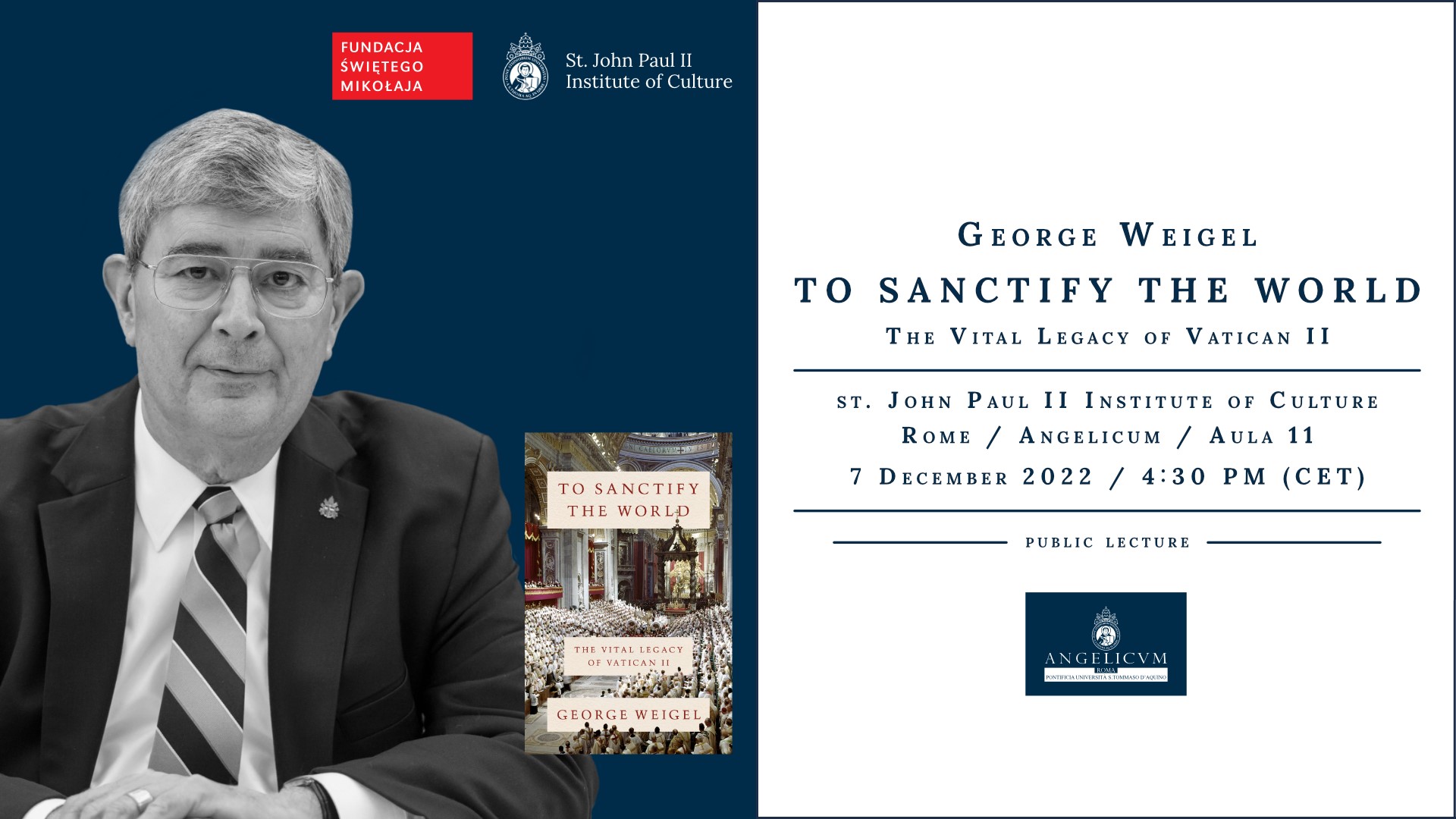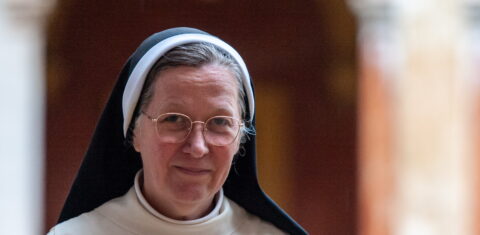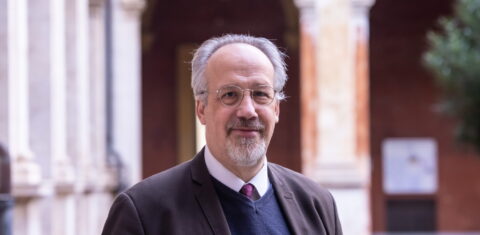Prof. Weigel began his lecture by stating that the Second Vatican Council was a key moment in the history of the Church. A fundamental turnaround occurred at that time – a move away from the model of Counter-Reformation Catholicism towards a Catholicism of evangelization, necessary to meet the challenges facing the Church in the modern world.
The answer to the question of the necessity of such a change, and thus also the crucial importance of Vatican II, was given, according to Prof. Weigel, by John Henry Newman less than nine decades before the deliberations began. For Newman pointed out that Christianity had never before in its history had to face the challenge of an irreligious world. Pagans, however distant from the truth, nevertheless believed in the existence of a transcendent reality – and Christianity was able to confront and refute their arguments. The new, in Newman’s words, “epidemic of lack of faith,” however, was something else, a specific manifestation of the degeneration of Western culture and the emergence of a world devoid of purpose, focused on its own satisfaction – a claustrophobic, self-enclosed world that does not allow the voice of God into itself.
Christianity had never before in its history had to face the challenge of an irreligious world
As a result of this transformation, the optimism that was still widespread at the turn of the 20th century, the belief in human progress and rationality, gave way to the tragedies of the 20th century, unimaginable crimes, and oceans of blood.
As Prof. Weigel stated, the person particularly well equipped to understand the nature of this crisis was John XXIII. Thanks to his historical knowledge, his experience of World War I, and his numerous travels in Europe, this pope came to the same conclusions that the gifted German theologian Joseph Ratzinger had formulated in 1958 – the Church, which had once converted pagans, had itself now become popualted by them. It was this sense of a profound crisis of civilization that was behind John XXIII’s decision to convene Vatican II. It was not to fight heresy, but to find answers to the threat of homo irreligiosus.
One of the key answers to questions about the causes of the crisis (which anticipated John XXIII’s later conclusions) was given by Bishop Karol Wojtyła. He pointed to the threat posed by Cartesian solipsism, the decline of metaphysics and the triumph of closed-minded epistemology, which were to result in communism, nazism and other deformations of human thought. To save the Western humanist project, the Council, according to Wojtyla, had to put Jesus Christ back at the center of Church doctrine. It had to move away from the ecclesiology-centered Counter-Reformation tradition and undertake a Christocentric mission of evangelization.
This was also the view expressed by John XXIII in his opening Vatican II speech “Gaudet Mater Ecclesia.” In it, the Pope appealed for the awakening of a new evangelizing energy, for the Good News to spread, while stressing that this path is consistent with the organic development of Catholicism, with the interpretation of the permanent paradigm of the Church, with Christ at its center.
Prof. Weigel then stressed the importance of two fundamental documents of Vatican II – “De Verbum” and “Lumen Gentium.” The former document boldly stated that we do not live in a world where the Word of God does not reach us – on the contrary, the fact that God has spoken to us teaches us something not only about Him, but also about us – i.e. that we can hear the Word of God, encounter it, receive it and be transformed by it. That we are not just the result of chance, or soulless biological and chemical processes.
“Lumen Gentium,” in turn, pointed out that it is the Church that exemplifies the authentic community of people, based on a common faith. The sacrament of the unity of humanity.
Prof. Weigel pointed out that Vatican II did not leave behind a clear key to interpret its teaching. It was for John Paul II and Benedict to provide us with it. It was they who developed the idea of the Church as primarily a community of disciples. It was they who emphasized that Christianity begins with a personal relationship, with friendship with Christ, which, however, immediately brings a person into the community of the other friends of Jesus, turns a person into a living cell of the great body of the Church, which exists not for its own sake, but in order to pass on the received gift to others.
Vatican II did not leave behind a clear key to interpret its teaching – it was for John Paul II and Benedict to provide us with it
According to Prof. Weigel, the vitality of Catholicism continues precisely where the message of the Vatican II, expounded by John Paul II and Benedict XVI in a spirit of organic development and a continual deepening of understanding of Christ’s teachings still lives on. In turn, the Church is dying wherever Vatican II is interpreted as a fundamental paradigm shift in Catholicism, as its adaptation to the demands of the spirit of the times and the reality around us.
Concluding his speech, Prof. Weigel stressed the great importance of Vatican II, the teaching of which allows us not only to fight the modern crisis of modernity, but also to understand the fundamental role of the Church, which is to sanctify the world, bringing other people into a community of brotherhood with the Son of God.




